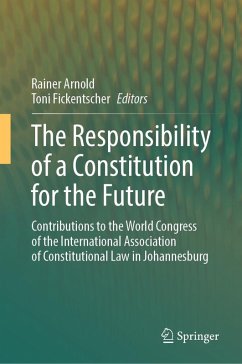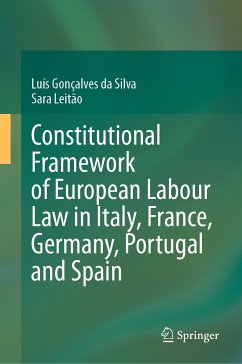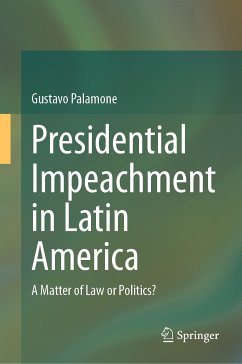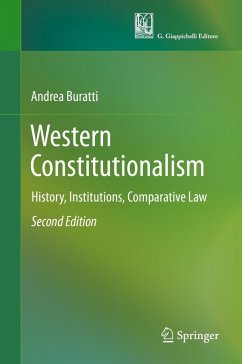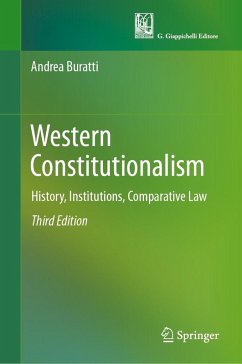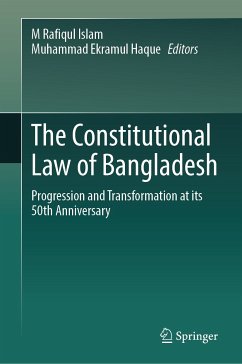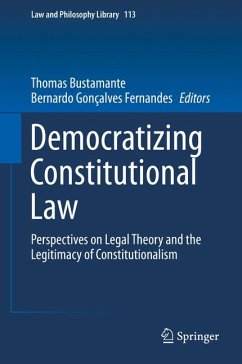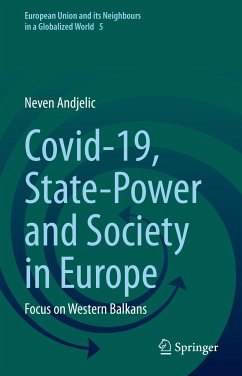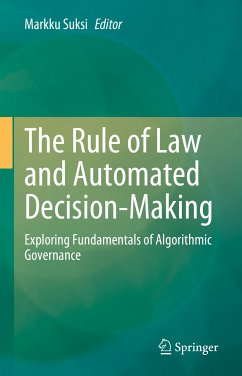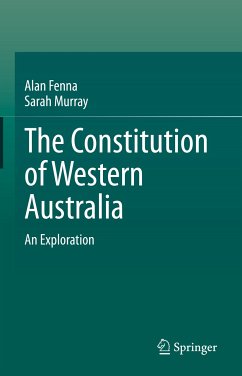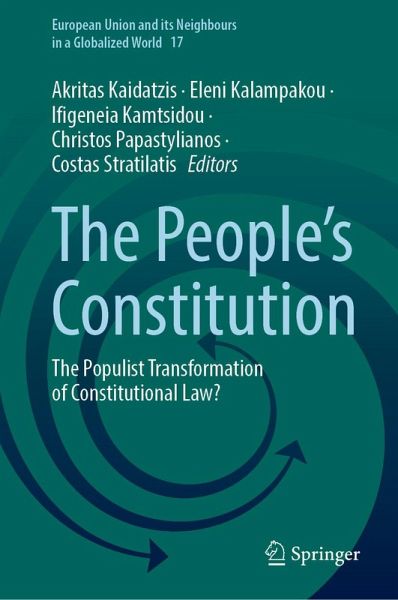
The People's Constitution (eBook, PDF)
The Populist Transformation of Constitutional Law?
Redaktion: Kaidatzis, Akritas; Stratilatis, Costas; Papastylianos, Christos; Kamtsidou, Ifigeneia; Kalampakou, Eleni
Versandkostenfrei!
Sofort per Download lieferbar
136,95 €
inkl. MwSt.
Weitere Ausgaben:

PAYBACK Punkte
68 °P sammeln!
The book explores in both theory and practice the challenges that various forms of populism pose to the dominant understandings of democratic representation and liberal constitutionalism. The volume brings together conceptual, analytical, and empirical dimensions of the relationship between populism and constitutional democracy. Moving beyond the dominant depiction of populism as "anti-pluralist", scholars of legal and political theory, both well-known and early career researchers, discuss the paradoxes of constitutional democracy that populism brings to the surface, the complex role of the ju...
The book explores in both theory and practice the challenges that various forms of populism pose to the dominant understandings of democratic representation and liberal constitutionalism. The volume brings together conceptual, analytical, and empirical dimensions of the relationship between populism and constitutional democracy. Moving beyond the dominant depiction of populism as "anti-pluralist", scholars of legal and political theory, both well-known and early career researchers, discuss the paradoxes of constitutional democracy that populism brings to the surface, the complex role of the judiciary both as an enemy and as a potential ally of populism, the relationship between economic power and populism and ultimately the impasses of liberalism that populism forces us to revisit. These are highly topical issues that they have not been sufficiently explored in the literature. A significant asset of the volume is that it includes chapters on empirical studies from under-explored cases such as Southern Europe and the Balkans. Thus, the volume poses an original contribution to the existing literature on constitutional populism. Its originality along with the high quality of the research will make this book necessary for any constitutional and political theorist who aims to delve into the relationship between constitutionalism and populism.
Dieser Download kann aus rechtlichen Gründen nur mit Rechnungsadresse in A, B, BG, CY, CZ, D, DK, EW, E, FIN, F, GR, HR, H, IRL, I, LT, L, LR, M, NL, PL, P, R, S, SLO, SK ausgeliefert werden.



